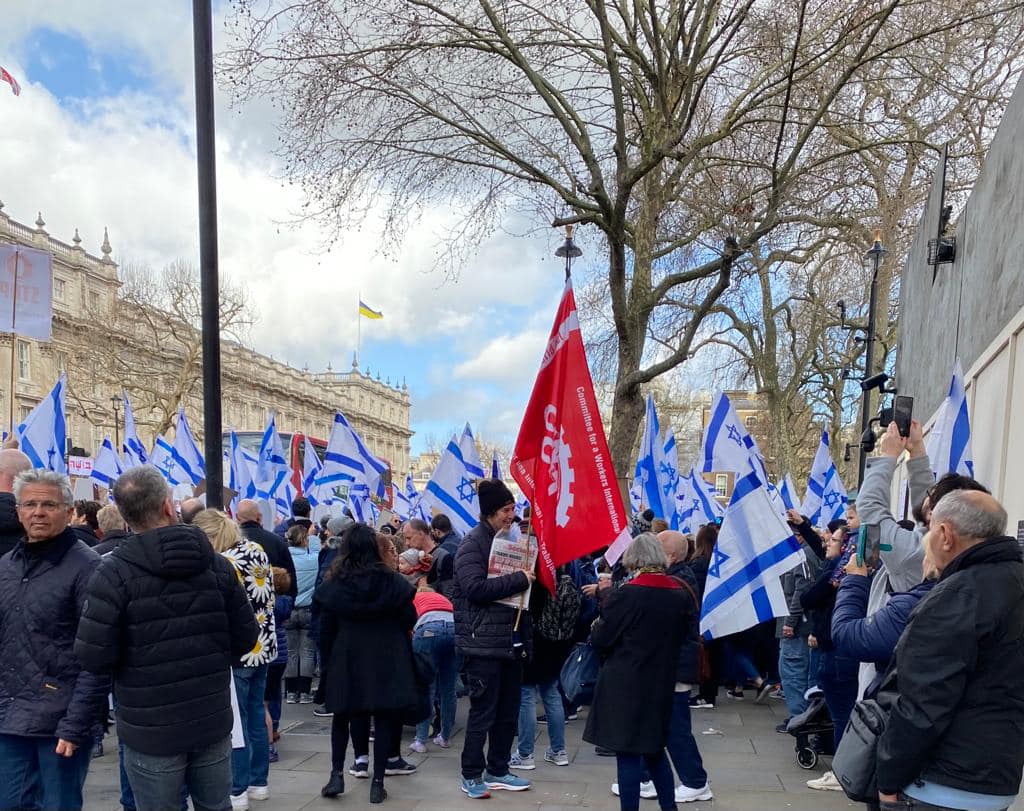Amnon Cohen, Committee for a Workers’ International
Israeli prime minister Benjamin Netanyahu’s sacking of defence minister Yoav Gallant on the evening of Sunday 26 March unleashed a spontaneous eruption of protests. 600,000 poured onto the streets, blocking highways with burning barricades. In Jerusalem, protesters broke through the barriers surrounding Netanyahu’s house. With universities, doctors and high school students already on strike, Arnon Bar-David, the General Secretary of the Histadrut, the largest trade union body, announced a general strike the following day in the presence of bankers and corporate CEOs, who gave Bar-David a standing ovation.
Public transport has been exempted from the general strike to allow people to travel to the anti-government demonstrations.
Netanyahu was expected to announce the freezing of his controversial judicial reforms (which would have allowed the government to pack the High Court with its supporters). But his announcement was postponed after his ultra-nationalist coalition parties threatened to bring down the government if Netanyahu surrenders to the “anarchists on the streets”.
Netanyahu is under siege, paralysed by his dependence on his ultra-nationalist coalition partners. He has tried to escape the protests by spending his weekends on lavish and unnecessary trips abroad – to Rome, to Berlin, and last weekend to London. But at each destination he has been hounded by protests of hundreds of Israelis and members of local Jewish communities.
The demands of the Histadrut general strike were unclear. Bar-David demanded that the legal reforms be frozen and the sacking of Gallant reversed. But the turmoil in society will not be solved by the freezing of judicial reform, or by a ministerial appointment.
The Netanyahu government says it was democratically elected only a few months ago. But it has lost all legitimacy. The hundreds of thousands on the street protesting against the government are the true expression of democracy.
It is necessary to bring down the capitalist government of ultra-nationalist settler zealots. But the experience of the administrations formed after five elections since 2019 shows that the capitalist politicians are incapable of forming a stable government which can tackle the crisis in society. None of the capitalist parties who make up the Knesset can solve the crisis in Israeli society – they are all part of the problem. Now there is the chance to begin to undermine the popular support of populists like Netanyahu, the far right and ultra-nationalists by offering a real alternative to them.
The general strike has forced the government to postpone the legal reform. But as long as this government stays in power, it will return to attacks once the protests subside. The experience of the previous Lapid-Bennett government shows that a different constellation of capitalist politicians, or a national unity government, will not solve the crisis in society.
Clearly many Israeli capitalists want a different government, one which serves their interests better. But workers’ organisations like the Histadrut, other trade unions and popular bodies should form a workers’ government, not made up of rotten MKs (MPs) but based on elected representatives from every workplace, school and community – religious and secular, Jewish and Arab.
Such a government must end the repression of the Palestinians, the attacks on the working class and defend the national and democratic rights of Palestinians and Israelis. It must nationalise the wealth of society and organise it to provide a decent life for everyone, while being the basis for Palestinian and Israeli working people to agree a socialist solution to the national conflict that has dominated the region for decades. This is the only way out of the crisis.

Socialist Party members joined protests in London as Netanyahu visited on 24 March







